- Home
- Rick Mofina
Whirlwind Page 2
Whirlwind Read online
Page 2
“Mommy!” Cassie was sobbing.
She was heavy in Jenna’s arm and she had to put her down.
“Mommy, please, no! I’m scared. Hold me!”
“Sweetie, we have to find someplace safe.”
Jenna’s heart was pounding as she looked for a stairway to a basement, a cellar, a grandstand, anything to protect her children.
There was nothing.
Oh God, please help us!
The roof began shifting. A steel trash drum punctured it like a bullet, smashing into a vendor’s stall. Then a small car with terrified people inside hurled through the top of one wall, crashing down onto the sea of helpless shoppers. People screamed while others tried to lift it from the victims.
The building’s walls began to ripple from the pulverizing wind. Jenna’s breathing quickened, the blood rush in her ears keeping time with her heart. She got down on her knees and pulled Cassie and Caleb’s stroller closer to her.
We’re not going to die here.
Someone grabbed her shoulder.
“This way!” a woman shouted into her ear. “Come with me! It’s safer this way!”
Jenna recognized the red-haired woman she’d met earlier, who’d fussed over Caleb.
“You look like you need a hand! Let me take him for you—we need to cut across the floor!”
Jenna had no time to think. She let the woman take control of Caleb’s stroller. Jenna carried Cassie while the man accompanying the woman cleared the way for them. Her pulse galloping, Jenna still savored a degree of relief.
Amid the noise and confusion they found a corner where four huge concrete planters were stored against a wall. Keep us safe here! Please keep us safe! The planters were about three feet tall and three feet square with a narrow gap between them that no one was using.
The roar grew so intense Jenna felt vibrations in her rib cage as the earth began trembling.
The woman pushed Caleb’s stroller into the gap between the planters; Jenna followed, holding Cassie. They hunkered down as chunks of wood began raining from the roof.
Adrenaline pumping, Jenna’s body quaked and she begged Heaven to keep her family safe.
As the man tried to pull a canvas over them, Jenna saw the winds suck the doors from the building, then some people.
The roof began twisting as trusses gave way and large beams fell on helpless people. Chunks of the building’s wall started ripping away, then the roof was gone, people vanished up into black swirling clouds. Metal, wood and debris rained down on Jenna and the others.
Tears streamed down Jenna’s face.
Please help us! Keep my children safe! Don’t let us die!
The heavy planters began shifting.
During horrible chaos Jenna held Cassie tight and held the stroller’s frame as the wind tried to tear it away. The kind stranger was holding on, too.
Lord, please help me!
The last thing Jenna remembered was hanging on to her children and praying before something struck her head. She saw stars before everything went black.
* * *
Jenna Cooper was floating.
She was adrift under a brilliant sun as diamond waves of warm water lapped on a white-sand beach. Blake was beside her, Caleb was napping between them, shaded by their towels. Cassie was making sand castles.
Totally content, Jenna watched the gulls gliding above them, circling, shrieking, inviting her...
...the shrieking...pulling her up from the beach...taking her higher, farther and farther from Blake and the children...no...she can’t leave them...the shrieking...no...she’s not ready to leave them...she’s rising faster...this can’t be happening...
Jenna’s eyes flicked open, squinting and adjusting to shafts of light piercing the latticework above. Where am I? A million muddled thoughts streaked across her mind as she blazed through an inventory of sensations. She was on her back. She wiggled her toes, her fingers, took a deep breath. No discomfort. Where’s Blake, the children? She thought she heard the clamor of radios in the distance. She coughed, twisted grit from her eyes, feeling warmth next to her and a familiar snuggle.
“Mommy!”
“Cassie!” Jenna moved to check her in the weak light. Cassie had cuts on her little cheeks. “Are you hurt, sweetie? Are you okay?”
“I think so. You got a big ouchy on your head.”
Jenna felt some swelling on her forehead and touched her fingers just at the hairline. It was tender, sticky and her fingertips glistened with blood.
“I guess I got a little bump, honey.”
Cassie’s chin crumpled and she cried. “I’m scared. What happened, Mommy?”
Images flashed before Jenna: The market, the storm, seeking shelter, a red-haired woman helping with Caleb, taking cover by the planters, everything going dark, the building breaking apart, Jenna’s hand holding the stroller.
Now her hand was empty.
She searched the area around her.
Where’s my baby?
“Caleb?” she said. Then, the scream ripped from her throat: “Caleb!”
3
Dallas, Texas
In the hour before the storm, Kate Page, an intern reporter at the Dallas bureau of the global news service, Newslead, was at her desk on the phone.
She’d taken a cold call from Cody Warren, a sixteen-year-old high school student whose father had been killed last week in a hit-and-run case just south of Dallas.
“Can you help us find my dad’s killer, please, ma’am?”
Kate adjusted her grip on her handset as he continued.
“We got to get the word out. Police say they have no leads, nothing.” Cody’s voice broke. “We buried him yesterday.”
Over the years, Kate had kept an emotional distance from the people she’d faced while reporting on tragedies. But she never lost her compassion and her heart went out to this teenager who’d been calling every newsroom in Dallas–Fort Worth.
He deserved kindness and the truth.
“Cody, I am so sorry for what’s happened. You have my condolences.”
“Thank you, ma’am.”
“I can’t guarantee that we’ll do a story, but I give you my word I’ll look into it, okay?”
There was a pause.
“You promise?”
“I promise.”
“Okay, thank you, ma’am.”
After hanging up, Kate took a moment then took a breath. Her attention shifted briefly when the chatter of the bureau’s emergency radio scanners blared from across the floor where Tommy Koop, a news assistant, was monitoring the stream of coded transmissions.
Kate thought she’d heard the word, tornadoes, until Tommy lowered the volume, and she guessed it was just a spurt of firefighter cross talk about weather forecasts.
Ten people worked at the bureau; most of the reporters were out. Kate had an hour before her next assignment, enough time to keep the promise she had made to her caller. She did a quick online search of the suburban news outlets for the last reports on the hit-and-run. Not much had surfaced. She made a round of quick calls to the highway patrol, the sheriffs for Ellis and Dallas counties, and Cedar Hill PD, which had jurisdiction. Kate got through to a sergeant, who updated her.
“Cody’s father had stopped to help a driver, an elderly woman, change a flat on Bear Creek Road when he was hit by a car,” the sergeant said.
“He was being a Good Samaritan.” Kate was taking notes.
“That’s correct.”
Investigators had a blurred image of the suspect car from a store security camera but were counting on people who knew about the case to step forward. The sergeant gave Kate details on time and location.
After the call she looked out the bureau’s twenty-second-floor w
indows. The sky had darkened. It was raining with flashes of lightning.
She called Cody back for more background on his father. Then, pen clamped in her teeth, she crafted a tight three-hundred-word news story on the search for the car tied to the death of a Good Samaritan motorist. She sent it to the news desk, hoping Chuck Laneer, the bureau chief, would see it before Dorothea Pick, the bureau’s news editor.
The scanners grew louder again with dispatches on a storm, and Tommy paced between his desk and the window, then began making calls. A severe weather warning had been issued earlier in the day indicating a slim chance of tornado conditions. Kate considered it for a moment, wondering about the odds of a tornado touching down and thinking that it was a good thing she’d brought her rain jacket. She still had some time before her assignment, a city meeting on parks that Dorothea had given her.
Kate glanced at Tommy. He was a good-hearted, hardworking kid, she thought, before her concern shifted to whether Chuck and Dorothea had assigned a reporter to monitor the possible storm.
She took stock of her temporary “squatter’s” desk, at the artifacts left by the previous occupant; the torn city map pinned to the fabric half wall, alongside the calendar and the fading list of contact numbers.
She had worked at a newspaper in Ohio before she was laid off. Now she was a week into a three-week “internship” at Newslead’s Dallas bureau. Internship? It’s an all-out job competition.
Kate was one of three reporters in the program. The other two candidates were experienced and they were Texans.
Roy Webster, 42, had been with the Houston Chronicle for twenty years before he was laid off. His team had been a finalist for a Pulitzer for its coverage of Hurricane Ike.
When they had all first met, Webster had extended his hand. “You’re not from Texas, are you, Kate?”
“No, I’m not.”
“You chose a helluva way to get to know the state.” He winked.
The other candidate, Mandy Lee, 33, was a general assignment reporter and former teen beauty queen, who’d won two state news awards before she’d taken a buyout from the Dallas Morning News.
She was cool to Kate when they’d met.
“Canton, Ohio? I didn’t know they even had a paper in that itty-bitty town.” Mandy showed Kate her pageant-winning smile.
Kate knew she was at a disadvantage. She’d also sensed that Dorothea Pick had disapproved of her being on the short list.
“You’re fortunate to be here,” Dorothea had said. “There were so many strong candidates right here in Dallas.”
For his part, Chuck Laneer, impressed by Kate’s doggedness when she’d worked in Ohio, had been firm but fair.
“Just show us your best,” he’d told her.
Oh, she’d do more than that.
Roy and Mandy may be better qualified but Kate was a never-say-die fighter. At the end of the internship, one of them would have a job. The others would go home unemployed.
Losing out was not an option for Kate. These days most newsrooms across the country were cutting staff. Few were hiring. This was Kate’s best shot at a full-time job, maybe her only shot, and so far it was not looking good.
So far, her work had received little play, or had resulted in inserts in other peoples’ stories. She’d had her name on only one item that had been picked up nationally. She’d put a lot on the line to be here.
She could not fail.
Kate met the eyes of Grace smiling from her screen saver, and a wave of guilt rolled over her.
Did I make the right decision, doing this?
Grace, Kate’s six-year-old daughter, was back home in Canton, staying with friends. Lord, how Kate missed her; she hated being away from her but she needed a full-time job. She was laid off from the Repository six months ago and this Dallas internship was her best shot at a new start.
But so far, it was not going well. She needed to deliver stronger stories.
Kate’s phone rang. It was Dorothea.
“Got your story. Come see me.”
When Kate got to Dorothea’s desk, the news editor patted a chair she’d rolled next to hers. Kate’s story was up on her monitor.
“Have a seat,” Dorothea said. “I want you to see what I’m going to do.”
Dorothea Pick, second in command at the bureau, was in her late forties. Kate thought she wore a little too much makeup and with her overarching eyebrows, appeared to be in a state of perpetual surprise, or anger. She had a lovely voice that dripped with Southern charm that bordered on condescension whenever she addressed Kate about her work.
“This is well written but it’s not a national news item.” Dorothea’s extension rang. She glanced at the number. “Hang on, I need to take this.” Into the phone, she said, “Where are you? Okay, what do you have? Yes, yes...but did it touch down?” After waiting for the answer, Dorothea glanced to Chuck Laneer’s glass-walled office. They could see him on the phone, standing at his desk, shirtsleeves rolled up, bifocals pushed atop his forehead and pointing a remote at his flat-screen TV. “I’m going to pass you to Chuck.”
Dorothea transferred the call and resumed her work with Kate’s story. Her mouse and keyboard clicked as she removed line after line.
“As you know, this tragedy was reported regionally, so at best this is an updated regional brief and regional briefs are one hundred words, maximum.” With surgical precision, she’d reduced Kate’s story to ninety-five words. “And, as we know, briefs don’t run with bylines.”
Kate watched Dorothea delete her name.
“There we go,” Dorothea said. “How’s that?”
“I don’t understand why this is not a story,” Kate said. “This man was a volunteer firefighter, an ex-Marine who’d done duty in Afghanistan. He stopped to help a woman who’d been visiting her dying husband in the hospital and paid for it with his life. The person responsible for killing him has so far gotten away with it.”
Dorothea nodded and smiled. “Sorry, it’s a traffic accident. Now you should get moving to the assignment I gave you.”
“The one about the meeting on city parks?”
“It concerns Dealey Plaza.”
“But there’s a severe storm approaching, possibly with tornadoes. Maybe I could help cover the outcome? The meeting doesn’t sound like hard news. I could pick it up later.”
“We’re fine with the storm. We need someone at the parks meeting.”
“But—” Kate shot glances at the news assistant monitoring the scanners and Chuck Laneer in his office on the phone “—I really think—”
“Are you refusing an assignment, Kate?”
“No, not at all.”
“Did you read the report on Dealey Plaza that I gave you?”
“Yes. But all it suggests is planting some trees.”
“You’re not from Texas, so you can be forgiven for not understanding that Dealey’s a national historic landmark. Anything concerning the plaza interests editors across the country. You’d better hurry along.”
Kate returned to her desk for her things.
Biting back her frustration, she pulled on her raincoat, unable to dismiss the niggling feeling that Dorothea was attempting to thwart her. In the past week she’d given the two other interns bigger stories that got major national play. It seemed Dorothea went out of her way to feed Kate scraps and soft news.
“Everybody stop what you’re doing!” Chuck’s voice boomed.
He stood in the doorway of his office holding a notebook in one hand and his glasses in the other. Thirty-nine hard years in news were written in the lines that creased his rugged face.
“We have confirmation that tornadoes are cutting across the metropolitan area. We have casualties and destruction.” Laneer glanced at his notebook. “We’ve got people going to Arlington, Grand Prair
ie and Lancaster.”
Laneer pointed his glasses at Kate.
“I want you to get to Wildhorse Heights, to the Old Southern Glory Flea Market, south of LBJ and Hawn. It got hit. New York wants everything we’ve got and they want it fast, people. Stand down from all other assignments. There is only one story today. Let’s get on it.”
4
Dallas–Fort Worth Metroplex, Texas
Kate took the elevator down to the building’s parking garage.
She hurried to her car, a 2007 Chevy Cobalt that started with a rattle, reminding her that she had to get it to the shop one of these days. She reset her mileage counter then keyed the flea market address into the GPS on her dash.
Newslead’s bureau was in Bryan Tower. The flea market was about twelve miles southeast.
She switched on her hands-free speakerphone and wheeled out of the garage. Her wipers swept at the rain as Chuck’s orders echoed in her head.
“Get us the facts, the heartbreak and the heroes.”
Kate got onto the expressway with her stomach tightening, as it always did whenever she’d rushed off to a breaking story. No matter how many tragedies or disasters she’d covered, Kate never got used to it.
No reporter did.
You never knew what you were heading into. But it was up to you to pull a story out of the chaos, to make sense of whatever was unfolding and to do it as a clock ticked down on you. And if that wasn’t enough pressure, Kate knew that she and her two competitors would be judged by their performance on this story.
The prize was a full-time job.
She adjusted her grip on the wheel as she worked through traffic.
I’ll do whatever it takes, she vowed to her daughter’s snapshot on the visor as the radio news broadcasted tornado updates, confirming: “A large number of fatalities,” shifting Kate’s thoughts to the victims and their families. She did not want to land a story, or a job, at the expense of someone else’s pain.
I didn’t mean it that way. Forgive me.

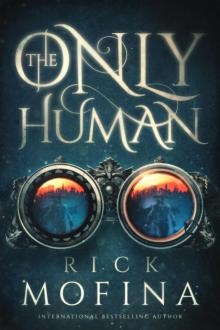 The Only Human
The Only Human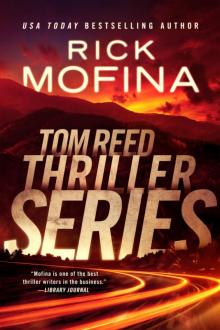 Tom Reed Thriller Series
Tom Reed Thriller Series![[Tom Reed and Walt Sydowski 04.0] No Way Back Read online](http://i1.bookreadfree.com/05/tom_reed_and_walt_sydowski_04_0_no_way_back_preview.jpg) [Tom Reed and Walt Sydowski 04.0] No Way Back
[Tom Reed and Walt Sydowski 04.0] No Way Back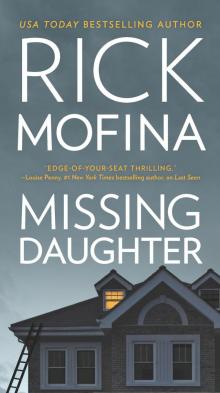 Missing Daughter
Missing Daughter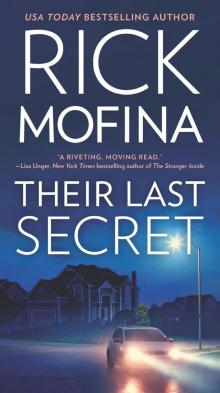 Their Last Secret
Their Last Secret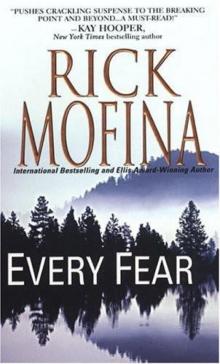 Jason Wade - 02 - Every Fear
Jason Wade - 02 - Every Fear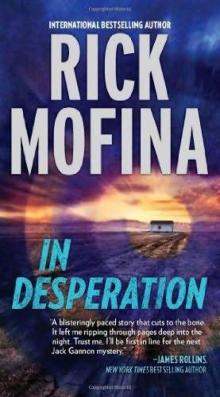 In Desperation
In Desperation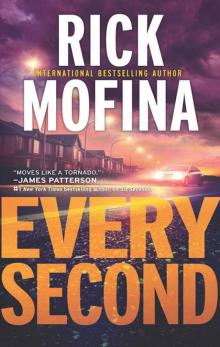 Every Second
Every Second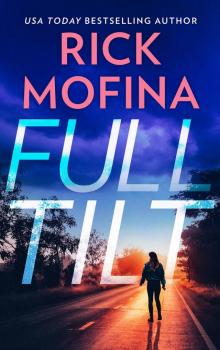 Full Tilt
Full Tilt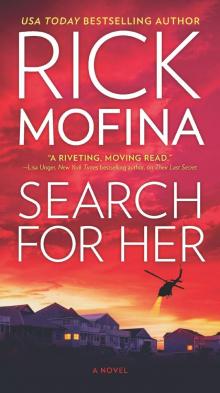 Search for Her
Search for Her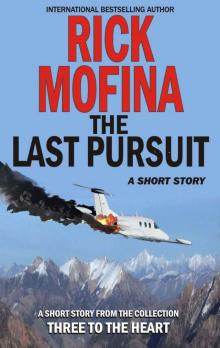 The Last Pursuit
The Last Pursuit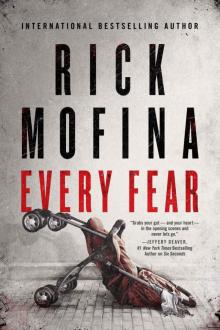 Every Fear
Every Fear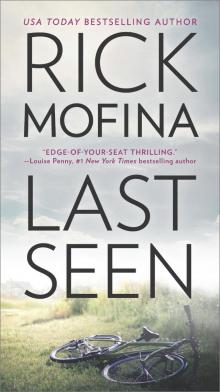 Last Seen
Last Seen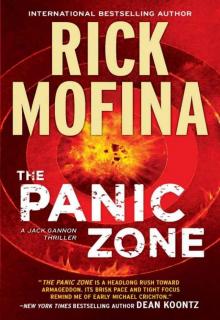 The Panic Zone
The Panic Zone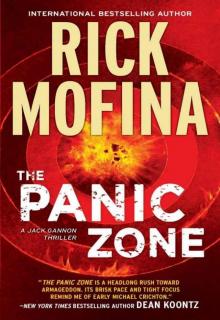 The Panic Zone jg-2
The Panic Zone jg-2 Free Fall
Free Fall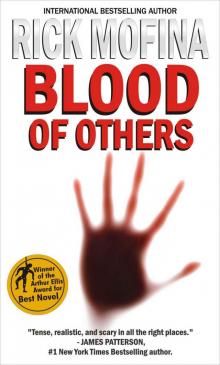 Blood of Others
Blood of Others![[Jason Wade 02.0] Every Fear Read online](http://i1.bookreadfree.com/i1/03/31/jason_wade_02_0_every_fear_preview.jpg) [Jason Wade 02.0] Every Fear
[Jason Wade 02.0] Every Fear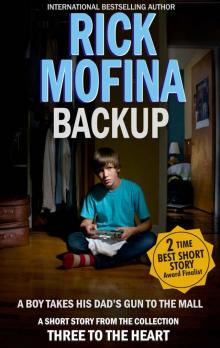 Backup
Backup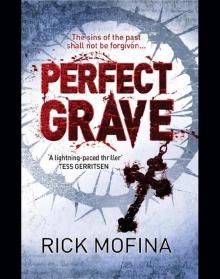 Perfect Grave
Perfect Grave Into the Dark
Into the Dark Whirlwind
Whirlwind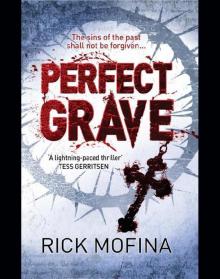 Perfect Grave jw-3
Perfect Grave jw-3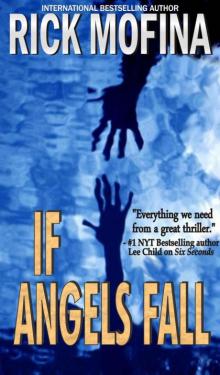 If Angels Fall (tom reed and walt sydowski)
If Angels Fall (tom reed and walt sydowski)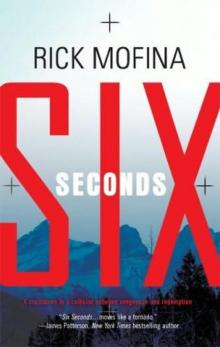 Six Seconds
Six Seconds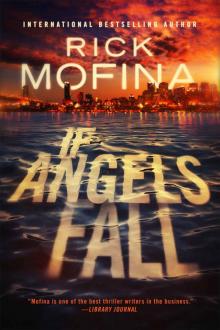 If Angels Fall
If Angels Fall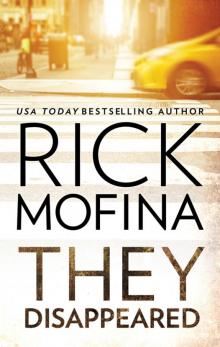 They Disappeared
They Disappeared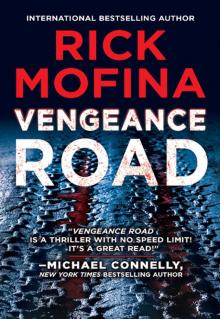 Vengeance Road
Vengeance Road Before Sunrise
Before Sunrise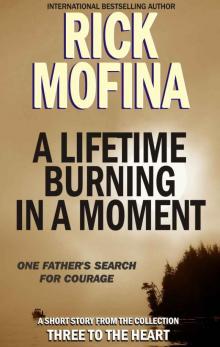 A Lifetime Burning in a Moment
A Lifetime Burning in a Moment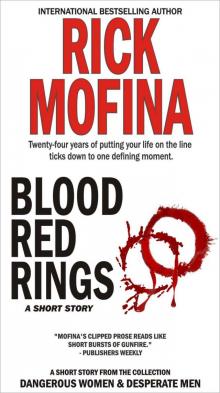 Blood Red Rings (Dangerous Women & Desperate Men)
Blood Red Rings (Dangerous Women & Desperate Men)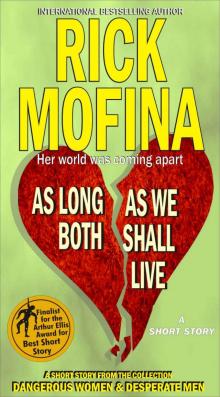 As Long As We Both Shall Live (Dangerous Women & Desperate Men)
As Long As We Both Shall Live (Dangerous Women & Desperate Men)![[Tom Reed and Walt Sydowski 01.0] If Angels Fall Read online](http://i1.bookreadfree.com/i2/04/12/tom_reed_and_walt_sydowski_01_0_if_angels_fall_preview.jpg) [Tom Reed and Walt Sydowski 01.0] If Angels Fall
[Tom Reed and Walt Sydowski 01.0] If Angels Fall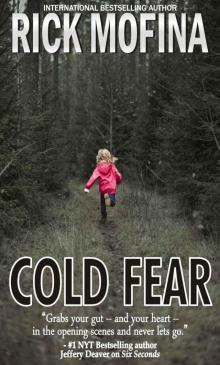 Cold Fear
Cold Fear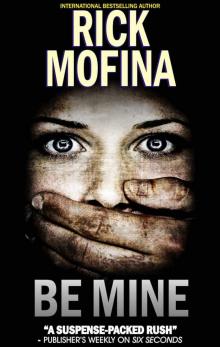 Be Mine
Be Mine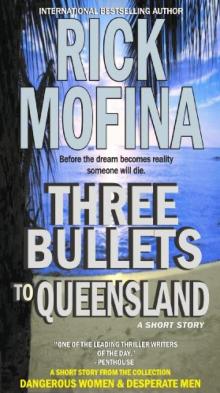 Three Bullets To Queensland
Three Bullets To Queensland